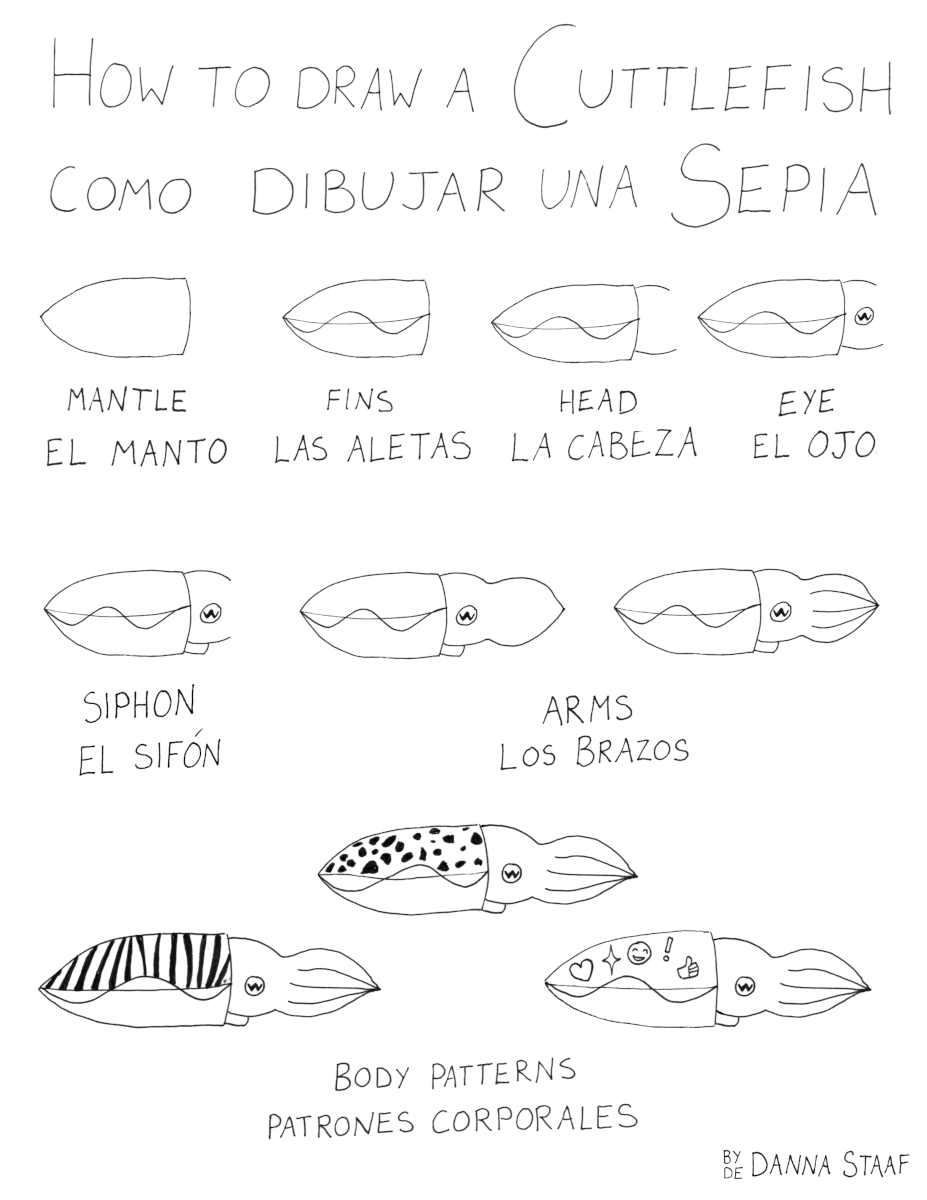The OctoPost: Making Friends & Squirting Ink
It seems like everyone has an octopus friend these days . . .

Cephalopod News
Shortly after reading the novel Remarkably Bright Creatures, in which the human protagonist builds a rapport with an aquarium octopus, I heard about a real-life beach-walker in Canada befriending an octopus. "There was a connection," she says. "He felt me and I felt him...I was giving him love, and he gave me love back." Marine biologist Helen Scales also recently recounted a meeting with an octopus that was "more than a physical connection. This was the first time a wild animal – free to go at any time – had hung around, paid me attention and wondered what I was."
At the same time, the internet has been abuzz over an Oklahoma family whose pet octopus had babies. Since they'd been keeping her as a single octopus without potential mates, they were understandably astonished when she laid eggs that hatched! But female octopuses can store sperm for months, and it's not uncommon for wild-caught individuals to smuggle sperm from previous mates into their new lives. In fact, a pet octopus in Wisconsin became a mom at pretty much the same time as the one in Oklahoma.
Octopus love is everywhere. It's the perfect environment for National Geographic's new show Secrets of the Octopus to hatch out on Earth Day, April 22th.
Meanwhile, the octopus's cuttlefish cousins have been making waves (heh) in science. Ink is well-known as a predator deterrent, but now for the first time, scientists have seen cuttlefish using ink in their communication with each other! Male cuttlefish release ink during mating displays, providing a dark background to contrast with their light body patterns. An ink-redible discovery! (sorry)
Cuttlefish also star in new research on memory and aging. Old cuttlefish seem to retain a type of memory that often fades in old humans: episodic memory, sometimes called "what-when-where" memory. This may be due to the absence of a hippocampus in cephalopods. I'm amazed that humans and cuttlefish can both use episodic memory--but in only one of us does the ability change over time. It's a perfect example of how convergent evolution can produce features that are at once wildly similar and fundamentally different. Human and cephalopod eyes are another example: similarly sophisticated, with lenses and corneas and complex image formation. But humans have a blind spot and color vision, while cephalopods lack both.
ERRATUM
As I wrote in last month's OctoPost, I love finding out I was wrong, so thanks to reader Angie for writing in with a correction! I'd mistakenly stated that octopus sex chromosomes are ZZ for males and ZW for females, but actually octopuses have no W chromosome. Instead, females are Z0--a single Z and nothing else.
My News
All three of my upcoming talks will be streamed online, and two also have an in-person option:
May 1, 7pm PT: Long Beach Aquarium of the Pacific, talking about Nursery Earth
June 19, 12:30pm PT: St. Francis Yacht Club, talking about Nursery Earth
August 26, 3pm PT: Smithsonian Associates, talking about cephalopod behavior (I proposed the title Cephalopods: Sense and Sensibility but we'll see if they take it)
With spring in the air (in the northern hemisphere) and Mother's Day coming up (in the USA), this is an excellent time to pick up a card or poster from my Mother's Milk art collection. Plus, Nursery Earth comes out in paperback next month and makes a great gift!
Funny Pages
I finished* my set of bilingual cephalopod how-to-draw sheets with this final installment: How to Draw a Cuttlefish/Como Dibujar una Sepia. ¡Felices dibujos! Check out my website for tutorials on giant squid, giant pacific octopus, and argonaut.

*I could probably be persuaded to make more.
Add a comment: